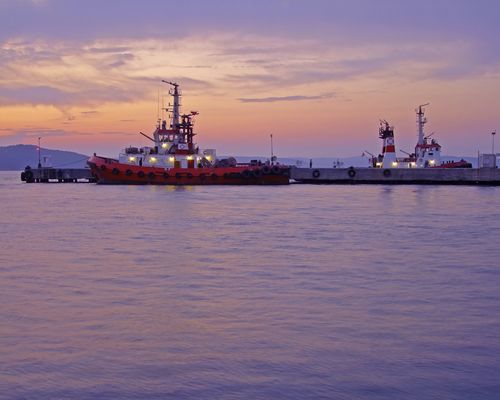Reducing fragmentation in maritime surveillance systems - ITEA RECONSURVE - EUREKA project showcase

The September 11 attacks led to a sharp rise in the global surveillance and security market, which has grown five-fold in 10 years and is forecast to double again by 2018. Now, a Turkish-led consortium is focussing on improving maritime security with a cost-effective approach to wide-area sea-border surveillance. The project will particularly reduce the number of illegal immigrants crossing sea borders in small boats.
RECONSURVE, an international R&D project under the EUREKA ITEA2 Cluster, is developing an open interoperable maritime surveillance framework with multimodal sensor networks and an automated decision-making and support system. It will replace the current fragmented systems across Europe.
All these fragmented systems fail to talk to each other and a key objective of RECONSURVE is therefore to achieve interoperability. ‘We are trying to develop interoperability standardisation in this area so that existing systems can share information,’ explains project leader Cengiz Erba of Turkish defence electronics company Aselsan. Outcomes will include improved small vessel detection and classification capabilities and cost-effective wide-area surveillance.
Working with coast guards
‘We started at the beginning of 2011,’ he says. ‘In the first 10 months, we worked closely with the Turkish Coast Guard Command to gather end-user requirements. We appreciate their active support, which enabled us to develop an operational and functional view document, including the specification of abnormal behaviours within an area.’ This view extended the usual statistical approach with the Turkish Coast Guards’ expert knowledge of suspicious vessel criteria.
The RECONSURVE project is not trying to develop yet another surveillance system, but rather creating interfaces between existing systems across domains and borders through an interoperability framework.
This framework will establish a secure cross-domain network to meet ever-increasing requirements to provide a common and recognised picture. Major activities include: integrating unmanned aerial vehicles (UAVs) with surveillance systems; developing situational awareness; interoperability; integration and validation. To accomplish all this, RECONSURVE is tackling a number of scientific and technical challenges, such as integrating UAVs and sonar sensor networks to command control. It will also provide semantic interoperability to enable different surveillance systems to cooperate by sharing information.
Scalable solutions

‘We have a clear focus on improving sea border surveillance by developing scalable, reliable and cost-effective solutions to identify illegal activities without hindering the flow of legitimate vessel traffic,’ says Erba . ‘The use of our results will dramatically improve the effectiveness of maritime surveillance, specifically for monitoring non-reporting vessels, and will reduce the costs of deploying such systems.’
Illegal immigration networks have an estimated market of some 4 billion euro annually. This project will make it more difficult for illegal networks to operate across sea borders and will thus contribute to the fight against such networks. The costs that European economies incur to deal with illegal immigration could then be reduced.
RECONSURVE will also help make search and rescue operations more successful through early detection of boats in trouble.
Technological progress
RECONSURVE has already made progress with technological developments, specifically related to image processing, interoperability, command and control. ‘We specified the system interfaces for sensor data processing and created databases for virtual two-dimensional (2D) infra-red (IR) image and a real IR image,’ explains Erba.
More information at www.reconsurve.eu
Related projects
RECONSURVE
A Reconfigurable Surveillance System with Smart Sensors and Communication


